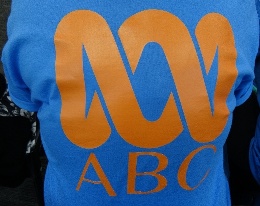 A Charles Sturt University (CSU) academic argues that the federal government's 'efficiency dividend' cuts to the Australian Broadcasting Corporation (ABC) and the Special Broadcasting Service (SBS) are an attempt to silence or curtail opposition voices in a democracy.
A Charles Sturt University (CSU) academic argues that the federal government's 'efficiency dividend' cuts to the Australian Broadcasting Corporation (ABC) and the Special Broadcasting Service (SBS) are an attempt to silence or curtail opposition voices in a democracy.
Associate Professor Chika Anyanwu, Head of the CSU School of Communication and Creative Industries, said, "Public broadcasting services face many challenges in today's information age, but the fundamental role of the media, and in particular public service broadcasters, is to enable society to hold governments to account by creating forums for open dialogue. The ABC in Australia does this by challenging the status quo.
"Both the ABC and the government have legislative mandates to serve the people of Australia," Professor Anyanwu said. "Both do not necessarily agree with each other's view on how to define national interest, yet both are working in the interest of the same nation. Therefore, their opposition to each other's approach does not necessarily make one un-Australian and the other more Australian.
"While the Abbott government came to power through electoral ballot, the ABC came to power through an Act of Parliament.
"But if public opinion is anything to go by, it could be argued that unlike the government, the ABC commands more respect and following in Australia and overseas than the Abbott government in its first six months in office. News polls consistently rate the ABC higher in quality journalism, trustworthiness, balance, and, most importantly, as an Australian icon.
"It can therefore be argued that the tension between the ABC and the government on how they carry out their services to the Australian people is fraught with complex problems of definition."
Professor Anyanwu argues that the ABC is expected to present and report the 'good, the bad and ugly' of the country and not merely endorse government policy to the world. Such a critical position defines its role as a 'fourth estate' charged with the power of checks and balances, and that the ABC's concept of citizenship is beyond the geophysical boundaries of Australia.
"The government on the other hand wields its own powers to counter the ABC's extended interpretation of Australia's nation state," he said. "Its definition of Australia is limited by its geophysical borders, hence its border protection policy against asylum seekers deemed as intruders or illegal migrants. It also counters ABC's powers through economic blackmail.
"While the ABC believes that people have a right to know how the government operates, there is no guarantee that such knowledge will change the government's policy, especially if the government continues claiming that it has been elected to implement its agenda or that its actions are in the national interest.
"The Australian compulsory election system requires an open and transparent information network that enables citizens to make informed decision on their plebiscite.
"Therefore transparency becomes important to the people, and the ABC and SBS, who are not afraid to question government policies, are the two trusted voices of the people.
"The National Party, as Coalition partner in the Abbott government, seems to have lost its ways representing rural and regional Australia. The Nationals' votes support government decisions, and yet 'the bush' ends up suffering because these cuts to the national broadcasters impact 'the bush' more than metropolitan areas through the loss of 'local' services.
"Many Australians might agree that the last ditch in silencing opposition voices in a democracy has been blatantly displayed through the so-called 'efficiency dividend' which is effectively a 'budget cut' to the ABC and SBS."





Social
Explore the world of social